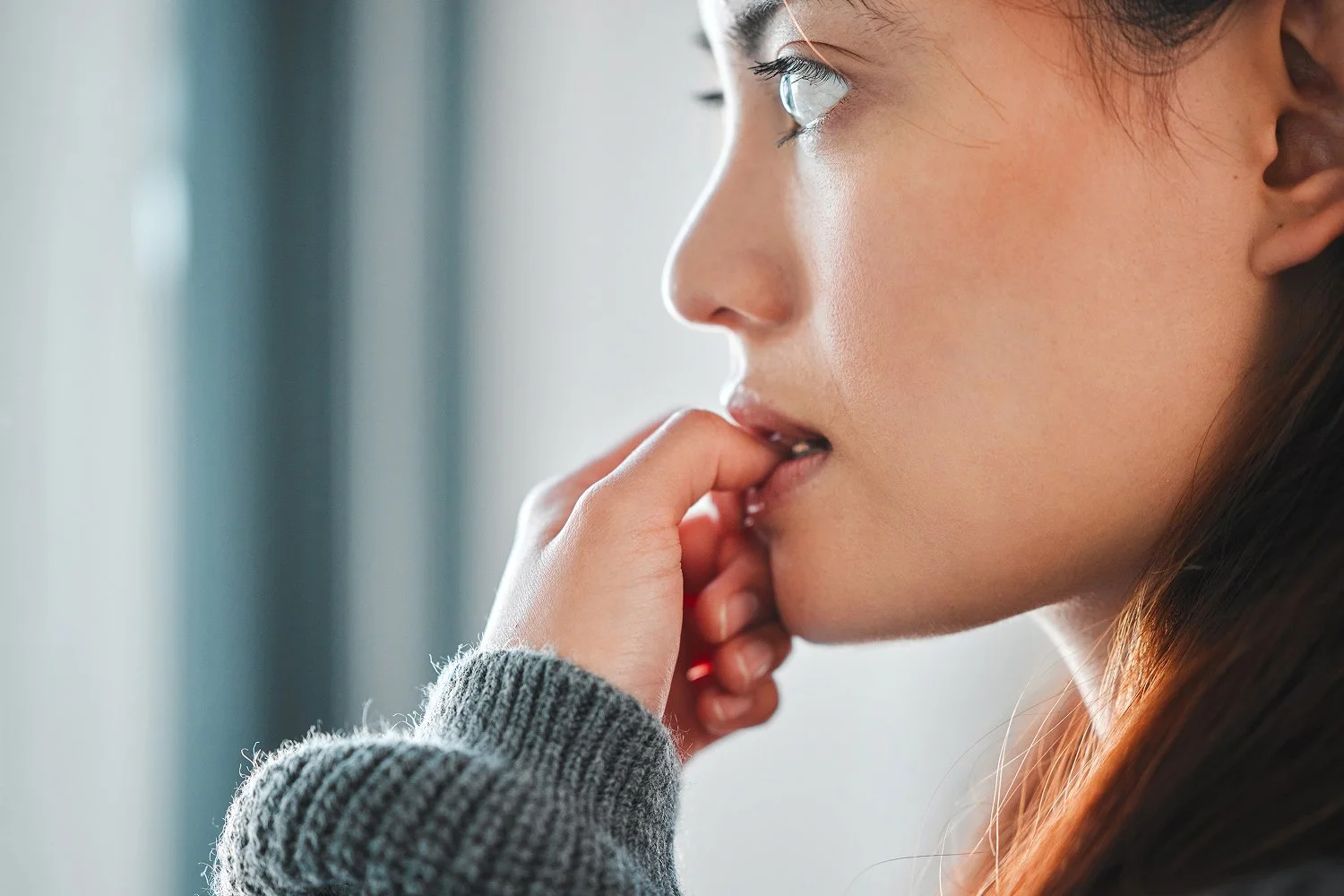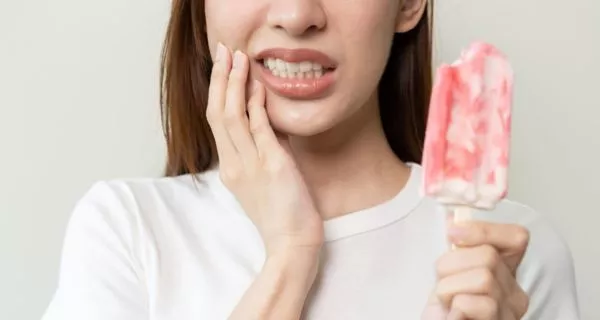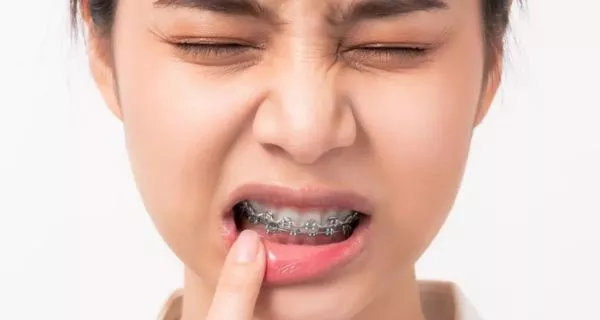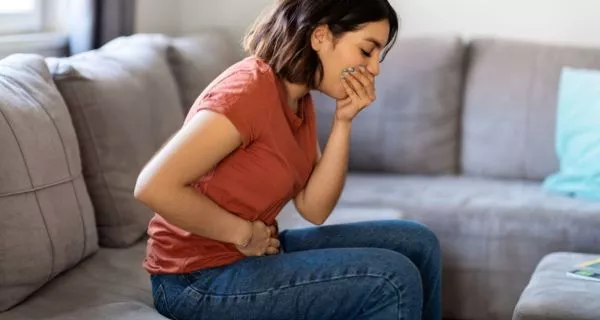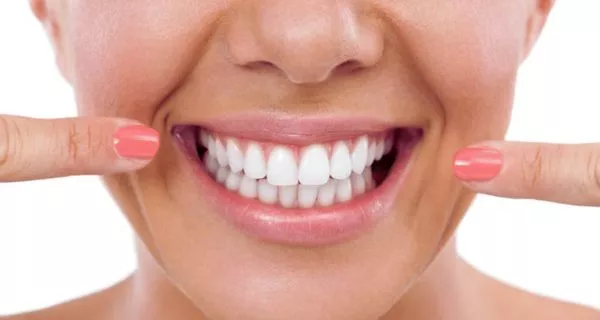Last Updated on: 5th November 2025, 08:55 am
Yes, nail biting can cause chipped or cracked teeth, hurt your gums, and wear down tooth enamel over time. It may even lead to jaw pain or infections. Stopping this habit protects your teeth, keeps your smile healthy, and prevents long-term dental problems.
Nail biting, also called onychophagia, is a very common habit. Many people start when they are children and continue as adults.
It may look harmless, but dentists warn that it can damage your teeth, gums, and jaw. It also brings bacteria from your fingers into your mouth, increasing the risk of infections.
In short, nail biting is not just a nervous habit; it’s a real health problem that needs care and attention.
Why do people bite their nails?
People bite their nails for different reasons. It is often not a choice but a reaction to.
- Stress or anxiety: Many people bite their nails when they feel nervous or worried. It helps them calm down for a short time.
- Boredom or focus: Some bite their nails when watching TV, studying, or thinking deeply.
- Perfectionism: Others want to “fix” uneven nails or rough edges.
- Learned habit: If parents or friends do it, children often copy it without noticing.
Understanding why you bite your nails is the first step to stopping it.
How does nail biting affect your teeth and gums?
Nail biting has real effects on your mouth. Every time you bite your nails, you put strong pressure on your teeth and gums. Over time, this can cause damage that becomes painful or permanent if not treated.
Can nail biting cause chipped or cracked teeth?
When you bite your nails, your front teeth do most of the work. This pressure can cause tiny cracks or chips that weaken the enamel and make teeth uneven.
Main problems include:
- small cracks in the enamel that are hard to see at first.
- sharp or uneven edges that may hurt your tongue or lips.
- pain or sensitivity when chewing or drinking hot or cold foods.
At first, the damage may seem small, but over time, your teeth can break or need fillings, veneers, or crowns.
Does nail biting wear down tooth enamel?
Even if nails look soft, they are hard enough to wear down enamel, the thin outer layer that protects teeth.
Possible effects:
- tooth sensitivity to hot, cold, or sweet foods.
- dull or rough tooth surfaces.
- higher risk of cavities and permanent enamel loss.
Once enamel is damaged, it cannot heal naturally. Protecting it early helps prevent long-term dental problems.
Can nail biting injure your gums?
Yes, sharp or uneven nails can easily cut or scratch the gum line. This makes it easier for bacteria to enter and cause infections.
Gum injuries can lead to:
- small cuts or bleeding after biting.
- swelling or redness near the teeth.
- bad breath from trapped bacteria.
- early signs of gum disease (gingivitis).
Repeated nail biting increases the risk of gum inflammation and infection, especially if hands aren’t clean.
Can nail biting cause jaw problems?
Frequent nail biting forces the jaw to move in a tight, unnatural way. This can stress the jaw joint, known as the TMJ (temporomandibular joint).
Common symptoms include:
- jaw pain or stiffness.
- clicking or popping when opening or closing the mouth.
- headaches or ear pain.
- trouble chewing comfortably.
The constant strain can lead to TMJ disorder, which may require therapy or bite correction.
Does nail biting affect orthodontic treatments?
Yes, especially for people with braces or clear aligners. Nail biting can undo months of orthodontic progress.
Possible consequences:
- bent or broken wires in braces.
- brackets are coming off the teeth.
- misaligned teeth are caused by extra pressure.
- delayed or uneven orthodontic results.
If you wear braces, avoiding nail biting is essential. It protects your treatment results and keeps your smile on track.
What other dental problems can nail biting cause?
Beyond visible cracks or chips, nail biting can lead to deeper dental issues that develop over time due to pressure and bacteria.
Additional risks include:
- Tooth movement: Repeated pressure can shift teeth out of alignment.
- Root resorption: Strong biting may cause bone loss under the teeth.
- Bruxism (teeth grinding): Nail biters are more likely to grind teeth, especially at night, leading to further wear and pain.
Nail biting may look harmless, but it can seriously harm teeth and gums. Over time, it leads to enamel loss, sensitivity, and even tooth damage that requires dental treatment.
What are the hidden health risks of nail biting?
Nail biting doesn’t just damage your teeth; it also exposes your body to bacteria, viruses, and dirt that live under your nails. Every time you bite them, you bring these germs directly into your mouth and bloodstream.
Possible health risks include:
- Stomach infections: Germs like E. coli or Salmonella can cause digestive issues or food poisoning.
- Colds and flu: Viruses enter your body more easily through your mouth or small gum cuts.
- Finger infections (paronychia): Redness, swelling, or pain around the nails from bacteria entering broken skin.
Think about how many things you touch every day, doorknobs, money, or your phone. Fingertips collect countless germs, and nail biting gives them a direct path into your system.
How can you stop nail biting?
Breaking the nail-biting habit takes time, awareness, and consistency, but it’s absolutely possible. The key is to identify what triggers the behavior and replace it with a healthier alternative.
Combining home strategies with professional support can make quitting easier and protect both your nails and your teeth.
What are simple ways to stop nail biting at home?
Small daily changes are necessary if you want to quit nail biting. These strategies help reduce the urge, protect your teeth, and keep your hands occupied.
- Identify your triggers: Notice when and why you bite your nails, boredom, stress, or focus are common causes.
- Keep nails short and clean: Short nails are harder to bite and less tempting.
- Use bitter-tasting polish: Clear coatings make biting unpleasant and act as a constant reminder.
- Replace the habit: Chew sugar-free gum, squeeze a stress ball, or use fidget tools to keep your hands busy.
- Get a manicure: Clean, polished nails motivate you to avoid biting.
- Wear gloves or bandages: Cover nails during idle moments like watching TV or sleeping.
- Take it slow: Stop biting one nail at a time and celebrate each small victory.
By becoming aware of your triggers and practicing small daily changes, you can gradually stop nail biting and maintain healthier, stronger teeth.
What professional treatments can help you quit nail biting?
If quitting on your own feels difficult or if nail biting has already damaged your teeth, professional help can provide both protection and long-term results.
- Custom mouthguards or bite guards: protect teeth from pressure and prevent further enamel wear.
- Orthodontic checkups: If you have braces or aligners, your dentist can make adjustments to avoid damage.
- Stress management therapy: Relaxation techniques such as deep breathing or mindfulness reduce anxiety-driven biting.
- Behavioral or cognitive therapy: A therapist helps identify emotional triggers and develop healthier coping strategies.
- Night guards or splints (for bruxism): Prevent teeth grinding and jaw tension linked to nail biting.
Professional guidance combines dental protection with emotional support, helping you break the habit safely and restore your oral health.
What are the benefits of stopping nail biting?
When you stop biting your nails, you will notice quick improvements:
- stronger teeth and enamel
- fewer gum cuts or infections
- better results from orthodontic treatments
- a fresher breath and a cleaner mouth
- healthier hands and nails
After a few weeks, your hands and smile will both look and feel much better.
Is it worth quitting nail biting?
Yes, it truly is. Nail biting might feel like a harmless habit, but over time it can wear down your teeth, irritate your gums, and even cause jaw discomfort.
Breaking the habit isn’t easy, but every small step counts. Keeping your nails trimmed, finding ways to manage stress, and asking your dentist for guidance can be really helpful.
Ending this habit not only protects your dental health but also supports your overall well-being, emotional balance, and self-esteem.
Frequently Asked Questions
Is nail biting considered a mental health issue?
Is nail biting contagious or learned by imitation?
Can nail biting affect the growth of my nails permanently?
What are some signs that nail biting has harmed my teeth?
Does using artificial nails help stop nail biting?
For some people, yes. Wearing acrylics, gel nails, or press-ons can act as a physical barrier and make biting harder. However, it’s important to use them safely, damaged or lifted artificial nails can trap bacteria and cause infections if not applied or removed properly.
Voice and Search (Q&A)
What happens if I bite my nails every day?
It can wear down your teeth, irritate your gums, and make your mouth more vulnerable to infection.
What’s the best way to stop biting nails?
Keep nails short, use bitter polish, and find stress-free habits like squeezing a stress ball.
Can nail biting cause gum infections?
Yes, germs from your fingers can enter your mouth and infect your gums, causing swelling or bleeding.
Share
References
1. Ciavarella, D., Montaruli, G., Giuliani, L., Bisceglia, M., Laurenziello, M., Fanelli, C., Lorusso, M., Esposito, R., & Tepedino, M. (2024). Effects of nail biting (Onychophagy) on upper central incisors in children and young adolescents. Applied Sciences, 14(16), 6856. https://doi.org/10.3390/app14166856
2. Ghanizadeh, A. (2011, June 1). Nail biting; Etiology, Consequences and management. https://pmc.ncbi.nlm.nih.gov/articles/PMC3556753/
3. Pietrangelo, A. (2020, August 26). What’s responsible for nail biting, and how to treat it. Healthline. https://www.healthline.com/health/why-do-people-bite-their-nails
4. Rees, M. (2022, March 22). How to stop biting the nails. https://www.medicalnewstoday.com/articles/how-to-stop-biting-nails
5. UCLA Health. (2022, September 2). How biting your nails is affecting your health. https://www.uclahealth.org/news/article/how-biting-your-nails-is-affecting-your-health
- Dr. Yeidy Carolina Mesa [Author]
DDS Yeidy Carolina Mesa Passionate Dentist | Advocate for Accessible Oral Health Education Graduating from Universidad CES in 2022, I am a dedicated general dentist with a lifelong passion for helping others and making a meaningful impact in the world. My journey into dentistry began at the age of 7, inspired by my own experience with braces and overcoming a fear of the dentist. This personal journey shaped my mission to help patients conquer their own dental anxieties and embrace a healthier,...
View all posts
- Nayibe Cubillos M. [Medical Reviewer]
Pharmaceutical Chemestry |Pharmaceutical Process Management | Pharmaceutical Care | Pharmaceutical Services Audit | Pharmaceutical Services Process Consulting | Content Project Manager | SEO Knowledge | Content Writer | Leadership | Scrum Master
View all posts
A healthcare writer with a solid background in pharmaceutical chemistry and a thorough understanding of Colombian regulatory processes and comprehensive sector management, she has significant experience coordinating and leading multidisciplina...


